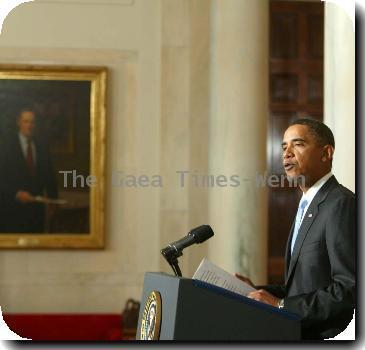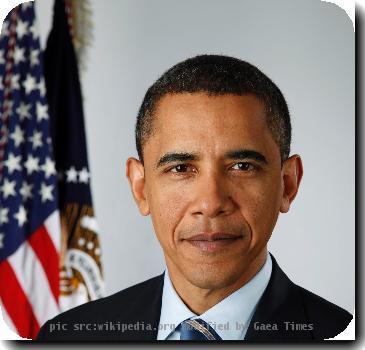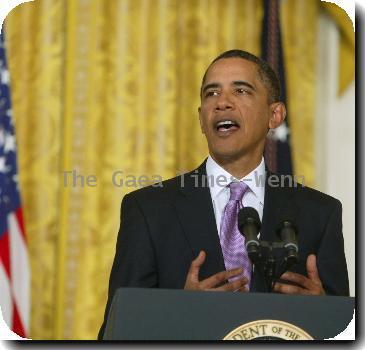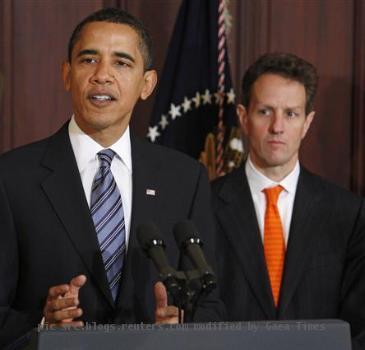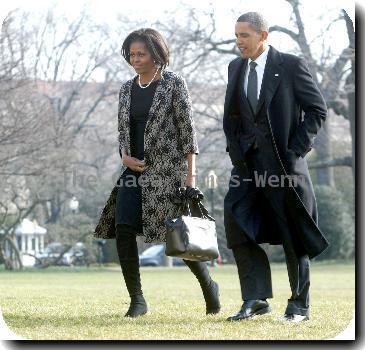Finance officials see improving global economy following deep recession, but threats remain
By Martin Crutsinger, APFriday, April 23, 2010
G-20 officials convene for talks on global economy
WASHINGTON — Global finance officials worked Friday to resolve differences in overhauling bank regulations, even as they wrestled with a pressing debt crisis in Greece that threatens to unravel gains in steadying the fragile world economy.
The International Monetary Fund issued a statement stressing that the 186-nation lending agency was prepared to process Greece’s request for emergency loans quickly, and IMF Managing Director Dominique Strauss-Kahn scheduled one-on-one discussions for the weekend with Greek Finance Minister George Papaconstantinou.
Greece’s call for help came as finance ministers and the heads of central banks from the Group of 20 major economies held closed-door discussions at IMF headquarters with the goal of resolving differences over various bank reform agendas being pushed by the United States and other nations. The group was to issue a joint statement late Friday.
“Financial reform remains for us the essential theme for the G-20,” German Deputy Finance Minister Joerg Asmussen told reporters before the talks began.
The G-20 is composed of the world’s richest industrial countries as well as fast-growing developing nations such as China, Brazil, India, South Korea and Russia. It has taken over as the prime policy-setting body for the global economy.
The United States was being represented by Treasury Secretary Tim Geithner and Federal Reserve Chairman Ben Bernanke. The talks Friday were in advance of weekend meetings of key policy boards of the IMF and its sister lending institution, the World Bank.
All the discussions were being overshadowed by Greece’s debt problems, which have roiled global financial markets for weeks.
Greek Prime Minister George Papandreou on Friday called for the activation of a joint eurozone-IMF financial rescue for his debt-ridden country.
In response, Strauss-Kahn issued a statement saying his organization was ready “to move expeditiously” on Greece’s request. IMF officials said emergency talks between an IMF team that arrived in Athens at the beginning of the week and the Greek government were continuing.
Greek officials said that Papaconstantinou, while in Washington, would have one-on-one discussions with finance ministers of Russia, Brazil and China over the weekend and would have a joint meeting with Strauss-Kahn and European officials on Saturday followed by one-on-one talks with Strauss-Kahn on Sunday.
“It’s clear that the Greek situation is a very serious one,” Strauss-Kahn told reporters Thursday. “There is no single way, no silver bullet to solve it in an easy manner.”
At the White House, presidential press secretary Robert Gibbs told reporters that the United States, the biggest shareholder in the IMF, supported an IMF loan package for Greece. He said the U.S. Treasury Department was closely monitoring the situation.
French Finance Minister Christine Lagarde, speaking to a Washington think-tank late Thursday, said she was confident Greece would be able to successfully implement an austerity program full of “very hard and harsh measures” being demanded by the other governments as a condition for support.
The Obama administration is hoping the G-20 will endorse a set of financial reforms that will complement the sweeping overhaul that President Barack Obama is seeking to get approved in Congress. That measure was scheduled for an initial showdown vote in the Senate on Monday.
The administration believes the United States, the world’s largest economy, must show resolve in fixing the flaws exposed by the financial crisis or the momentum for global reform could falter. However, the G-20 nations were finding it tough to reach a consensus in a number of key areas, including a call by the IMF to boost taxes on financial institutions to pay for future bailouts.
Canadian Finance Minister Jim Flaherty said Thursday, “I’m not going to impose a tax on our banks that performed well during the crisis.”
In addition to overhauling rules governing banks’ capital and liquidity standards and the regulation of exotic financial instruments such as derivatives, the finance officials were also scheduled to discuss efforts to assemble the IMF support package for Greece.
The G-20 talks were being held at a time when the global economy is showing signs of improvement. The IMF released a new outlook for the meetings that forecast growth this year of 4.2 percent, significantly better than the 0.6 percent drop in activity last year, the biggest plunge in the post-World War II period.
Strauss-Kahn, however, cautioned that the recovery was still “fragile,” with wide discrepancies between different regions. China, now the world’s third-largest economy, and other emerging Asian economic powers are surging ahead, followed by more moderate growth projected for this year in the United States and sluggish growth expected in much of Europe.
The Group of 24, composed of finance officials from developing nations in Africa, Latin America and Asia, issued its own communique Thursday, calling on the rich nations to avoid erecting protectionist trade barriers to deal with the economic slump.
The G-20 leaders will meet again in June in Toronto. The discussions among the finance officials were designed to make progress on the financial reform plan that will be presented to the leaders.
The finance officials were also debating ways to meet another goal set by leaders of pursuing more balanced global growth. Countries such as the United States are expected to show how they plan to narrow their trade and budget deficits while surplus countries such as China were expected to present plans for boosting domestic growth and relying less on exports.
Associated Press writer Foster Klug contributed to this report.
Tags: Asia, Barack Obama, China, East Asia, Europe, Financing, Government Regulations, Greater China, Greece, Industry Regulation, Korea, North America, Recessions And Depressions, Restructuring And Recapitalization, Summits, United States, Washington, Western Europe
